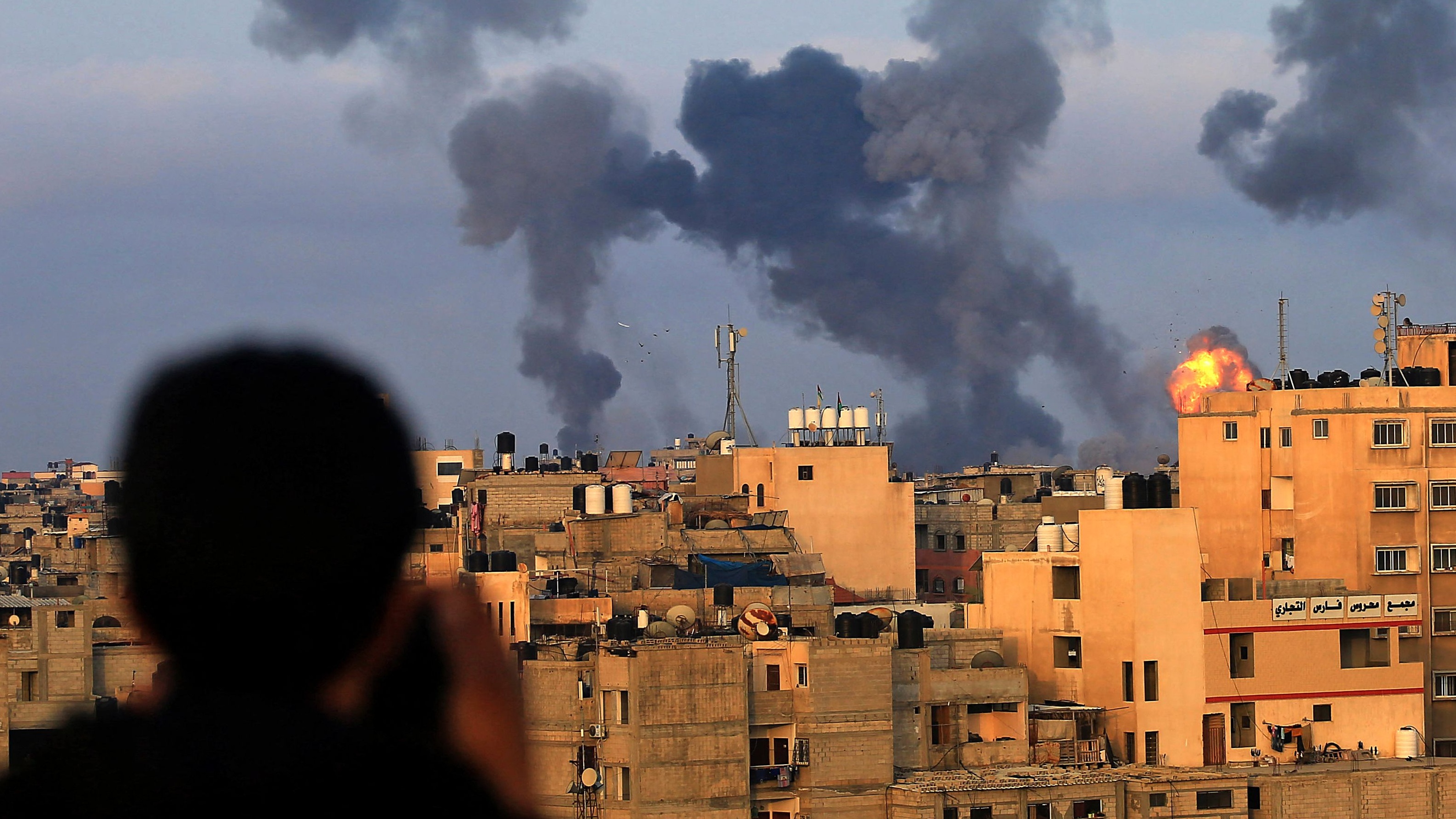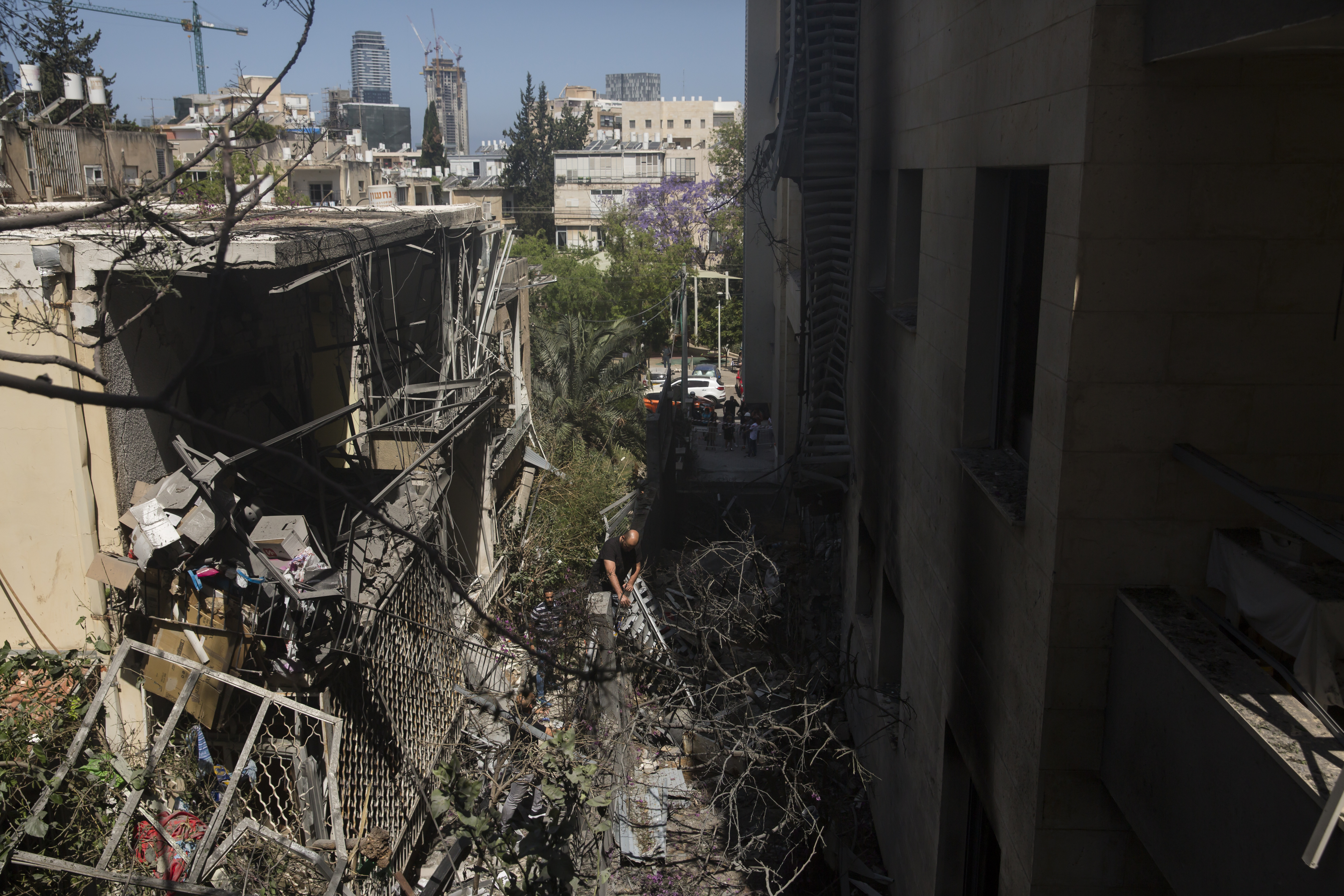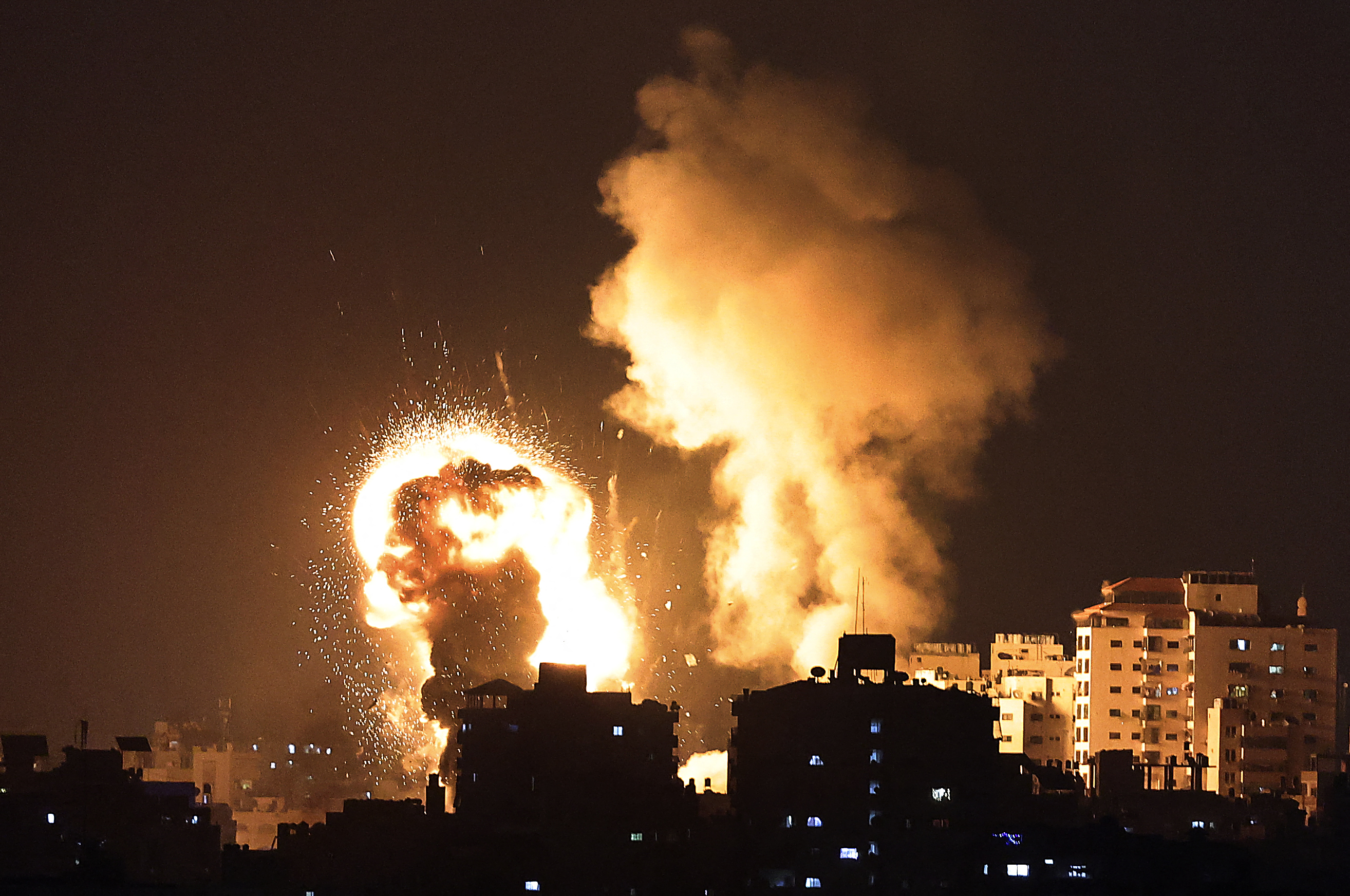Will fighting between Israel and Palestine trigger a third intifada?
State of emergency declared as conflict between Israeli military and Arab militants intensifies

A free daily email with the biggest news stories of the day – and the best features from TheWeek.com
You are now subscribed
Your newsletter sign-up was successful
Israel has declared a state of emergency in the central city of Lod after cars were set alight by Israeli Arabs and a father and daughter were killed by a rocket fired from Gaza.
The spiralling violence comes as the Israeli air force continues to bombard the Palestinian territory with air strikes, with eyewitnesses telling Reuters that a “13-storey residential tower” in Gaza has collapsed after being hit.
“More than 1,000 rockets have been fired towards central and southern Israel” by Palestinian militants in Gaza since Monday evening, the BBC reports, with at least 40 Palestinians and five Israelis dead in “some of the worst violence in years”.
The Week
Escape your echo chamber. Get the facts behind the news, plus analysis from multiple perspectives.

Sign up for The Week's Free Newsletters
From our morning news briefing to a weekly Good News Newsletter, get the best of The Week delivered directly to your inbox.
From our morning news briefing to a weekly Good News Newsletter, get the best of The Week delivered directly to your inbox.
Triggered by forced evictions of Arabs in a disputed neighbourhood of Jerusalem and aggressive Israeli policing around the al-Aqsa mosque, the events are beginning to resemble previous uprisings by Palestinians – raising fears of a third bloody intifada.
State of emergency
Israeli jets and militants in Gaza have continued to “trade fresh air strikes and rocket fire” since Monday evening, The Guardian reports, with violence that first emerged in Jerusalem now spreading to other areas across Israel.
“Sirens warning of incoming rocket fire blared in Tel Aviv and several explosions were heard” this morning, the paper adds, while in the multi-ethnic town of Lod, near Tel Aviv, local media reported that a father and daughter were killed when “a rocket hit a vehicle in the area”.
A free daily email with the biggest news stories of the day – and the best features from TheWeek.com
Hamas said that it had fired 110 rockets towards Tel Aviv in response to Israeli air strikes on Gaza that, according to Reuters, caused the collapse of a residential tower that “houses an office that is used by the political leadership” of the Islamists that control the territory.
“Residents of the tower and people living nearby had been warned to evacuate the area”, witnesses told the news agency, and it “was not immediately clear if the building had been fully evacuated, or if there were casualties”.
At 4.30am the Israeli Defence Forces said in a statement posted on Twitter that it had struck a number of “significant terror targets and terror operatives across the Gaza Strip” in response to “hundreds” of rockets fired by Palestinian militants.

In Lod, protests by Israeli Arabs following the funeral of a man killed in unrest in the city a day earlier have “escalated to full-scale rioting”, the BBC reports, with “protesters throwing rocks at police, who responded with stun grenades”.
Twelve people have so far been injured in the clashes, Haaretz reports, which saw “a synagogue and 30 cars set on fire” and a 56-year-old Jewish man “seriously injured after stones were thrown at his car”.
In the nearby city of Ramle, “fires were set at a synagogue, a marketplace and the Muslim cemetery”, while in the northern Israeli town of Acre, which is home to a mixed Arab-Israeli population, “a police station and restaurant were torched” and a “nearby hotel had to be evacuated due to the fire”, the paper adds.
On Tuesday night, Israeli Prime Minister Benjamin Netanyahu declared a state of emergency in Lod, marking the first time the government has exercised emergency powers over an Arab community since 1966.
Israeli border police have been drafted in from the West Bank, with National Police Commissioner Kobi Shabtai telling The Times of Israel: “We are seeing a situation in the mixed cities that we have never seen before, including the incidents of October 2000.”
Third intifada
In October 2000, Israel and Palestine were in the throes of the Second Intifada, a Palestinian uprising against Israel triggered in part by the failure of the 2000 Camp David Summit to reach final agreement on the Israeli-Palestinian peace process.
That conflict, also known as the al-Aqsa Intifada, in reference to the mosque where violence broke out earlier this week, would last for over four years, claiming the lives of over 1,000 Israelis and more than 3,000 Palestinians.
Tensions between Israelis and Palestinian Arabs had been running high for months, with the scale of violence now “escalating at such a pace that many worry it could be the beginning of a third intifada”, The National reports.

Tor Wennesland, the UN’s Special Envoy to the Middle East Peace Process, last night wrote on Twitter: “Stop the fire immediately. We’re escalating towards a full-scale war. Leaders on all sides have to take the responsibility of de-escalation.” The UN is currently working with Qatar and Egypt to deliver a ceasefire, with all three serving as mediators between Israel and Hamas.
As Sky News Jerusalem correspondent Mark Stone writes, the “first and second bloody intifadas started like this”, prompting concerned talk about “the prospect of a third”. While a third outbreak of violence is “in almost no one’s interests… the worrying elements are all there”, Stone adds.
The spark for the second intifada was a visit by then-Israeli prime minister Ariel Sharon to the Temple Mount, a hill in the Old City of Jerusalem that is home to the al-Aqsa mosque, the Dome of the Rock and the Dome of the Chain and is venerated as a holy site in Judaism, Christianity and Islam.
That this week’s violence broke out after Israeli police fired stun grenades on the al-Aqsa mosque has not been lost on analysts and commentators.
“Talk of a Third Intifada has bubbled up repeatedly in the last few years”, writes The Times’ Middle East correspondent Richard Spencer, and despite being “downplayed by politicians and commentators as being against the interests of all sides”, little has changed since Sharon’s visit.
“There is little sign of any ‘peace process’ leading towards Palestinian statehood”, Spencer continues, while Palestinians continue to “stagnate politically and economically, and are driven from their homes and land by Jewish settlers”.
One difference between now and the outbreak of the second intifada is that Netanyahu is weakened, having missed the deadline to form a government after inconclusive election results in March. The “opposition parties, who are trying to forge a coalition to replace him, will want to defuse, not inflame the situation”, Spencer adds.
That means that “there are grounds to hope that the calls for calm from London, Washington and elsewhere will be heeded”, he says. But he cautions: “few will be confident, though, after the violence at the mosque compound”.